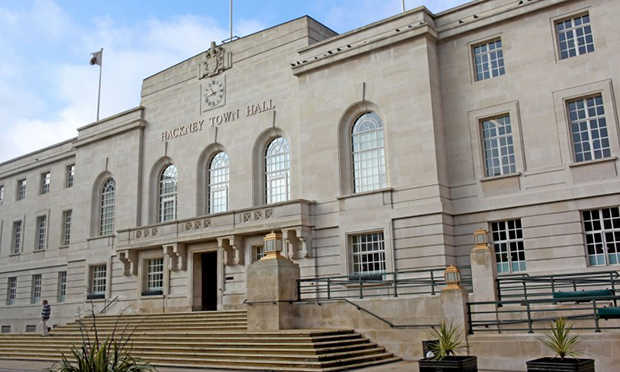Town Hall urged to ensure greater uptake of free school meals

Hackney Council has been urged to ensure greater uptake of free school meals, amid concerns that many who are eligible are not taking advantage of the scheme.
The Town Hall is receiving £1.1m of winter grant funding from central government, to be distributed initially in the form of £45 vouchers to 2,200 under-5s and 11,500 children on the free school meal register.
At a recent council meeting, local headteacher Richard Brown shared his worries that, despite the rates of uptake for free school meals increasing locally, there could still be large numbers of families who are eligible but not applying for the scheme.
Brown said: “The Urswick School has the most disadvantaged cohort of any secondary school in London, which came as a bit of a surprise to me. That’s on eligibility for pupil premium grant, [and] I still think there is a substantial group that is entitled to free school meals but not claiming them.
“What more can be done to encourage families to apply for free school meals? All the marvellous work of Marcus Rashford and others will be lost on those families if they are eligible and they don’t apply, and they won’t get vouchers for Christmas and support when they self-isolate.
“It’s absolutely vital that every family that is eligible signs up for free school meals, and I don’t think we’re doing enough to promote that.”
Town Hall SEND chief Cllr Caroline Woodley pledged that the winter grant would also fund promotion to help people find out what is available in terms of support, with the council desperate to avoid central government clawing back unspent cash.
Hackney has the third highest child poverty rate in London after Tower Hamlets and Newham.
The latest figures show that the number of children who have applied for and been found eligible for free school meals has risen from 777 to 1264 in the past year.
In March, an estimated 48 per cent of children were in poverty in Hackney once housing costs were taken into account.
Woodley said: “It’s quite difficult with the language we use. We want to identify the vulnerable and help the vulnerable, but who wants to confess to being vulnerable. I’m a lone parent and found it absolutely impossible to ask for help. When I needed it, there is no way I would have asked for it.
“You have to ensure that any offer has dignity firmly embedded in it. Let’s say you have a food offer, ensure that choice remains in that food offer. We’re already tackling that in understanding different cultural needs and communities.
“There is also a discussion around if you have a food bank, there is almost a shopping approach, so you can go and select food. I don’t know if you saw the government food packages we got initially, but I’ve got memories imprinted in my mind of the Mayor holding up litres of high sugar concentrated juice and white bread.
“There was that question of what is the surplus food and the cheap food, and asking if our residents deserve better? It’s about maintaining and understanding dignity, and that it is okay to have help, and finding creative ways to tackle that.”
Children can receive free school meals if their family receive benefits including Universal Credit, income support, income-based jobseeker’s allowance, income-related employment and support allowance, with a range of other credits making a family eligible.
All children between reception and Year 2 receive free school meals regardless of their income, though even if children are in these year groups families still need to apply for free meals if they receive benefits, with schools able to claim extra funding through the pupil premium.
According to Woodley, the Town Hall’s action on food poverty has been split into three levels, from immediate crisis support and ongoing medium term support to preventative work.
The council adopted a food poverty action plan last year, with an alliance formed the year before that consists of voluntary, community, private and statutory organisations and locals.
Along with an additional £500,000 invested into the council’s discretionary crisis support scheme and the wider roll-out of Alexandra Rose vouchers to the north of the borough, Woodley said that it is “the cost of housing and low wages that have driven up poverty levels”.
She added: “The longer-term solutions rely on us continuing to deliver a strategy that increases the supply of genuinely affordable housing for families. That is a challenge as we know.
“It also means working with employers to increase London Living Wage and to improve the quality of employment. The will is there – we have to find the way.”
Cllr Sophie Conway, who chairs the children and young people’s scrutiny commission, said: “No doubt we will continue revisiting this, as sadly child poverty blights our borough and we are always engaged in continued efforts to address this.”
You can find out more about eligibility for free school meals in Hackney here
